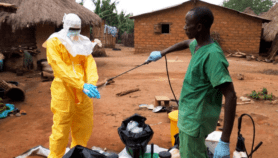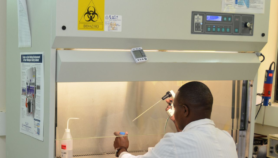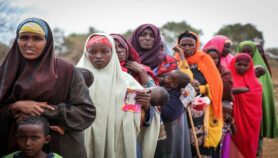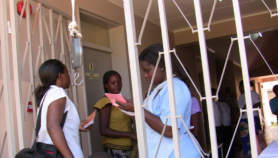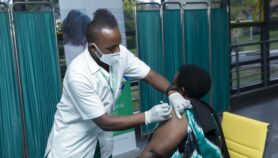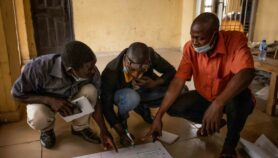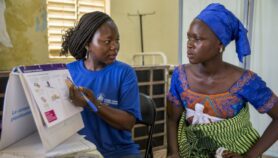09/02/21
Bad roads, insecurity could wreck COVID-19 vaccination
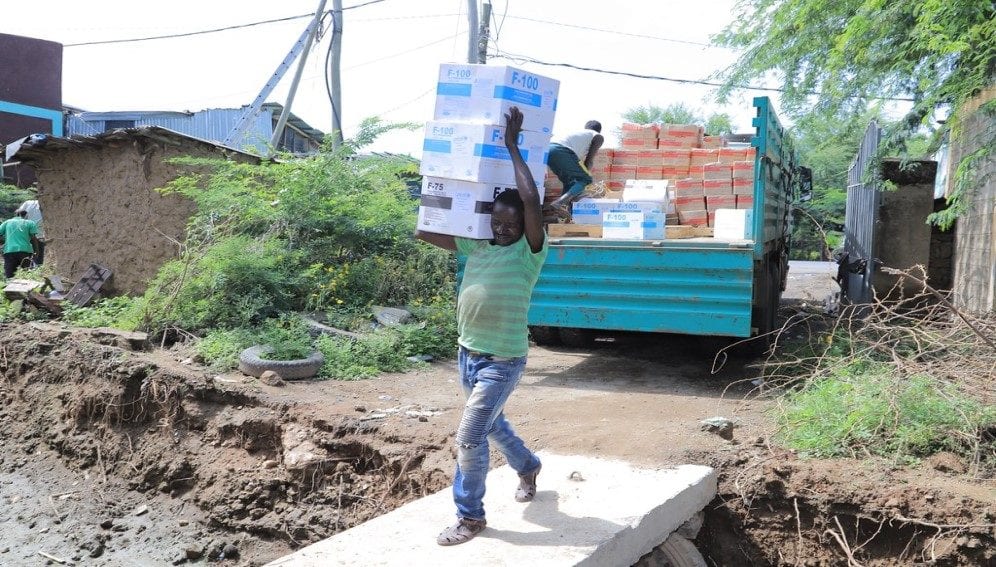
By: Eric Dumo
Send to a friend
The details you provide on this page will not be used to send unsolicited email, and will not be sold to a 3rd party. See privacy policy.
[LAGOS] Weeks ahead of the potential arrival of 41 million COVID-19 vaccines in Nigeria, there are already many problems on the ground that could hamper successful distribution, experts say.
Nigeria has so far recorded 139,748 confirmed cases of COVID-19 and 1,667 related deaths, according to the Nigeria Centre for Disease Control. And the figure will likely rise further following a surge in fresh infections in recent days.
“As far as I am concerned, Nigeria is not ready to receive the vaccine and distribute it accordingly.”
Sam Ohuabunwa, Pharmaceutical Society of Nigeria
Vaccine hesitancy and the poor state of roads across the country present significant barriers to the successful distribution of vaccines, especially in semi-urban and rural communities.
Faisal Shuaib, executive director of the National Primary Health Care Development Agency, said that the country applied for 41 million doses of a combination of Pfizer, AstraZeneca and Johnson & Johnson COVID-19 vaccines adding that the Nigerian government had had to increase its request through the African Union from an initial 10 million doses to effectively combat the spread of the virus.

Shuaib said that the vaccine doses are expected in Nigeria by the end of April, adding that the country has the capacity to store the vaccines.
But Sam Ohuabunwa, president of the Pharmaceutical Society of Nigeria, told SciDev.Net: “As far as I am concerned, Nigeria is not ready to receive the vaccine and distribute it accordingly. There are no -70 degrees Celsius freezers needed to store the [Pfizer] vaccine. If the government claims to have it in place, they should show it to Nigerians.”
Ohuabunwa believes the response to COVID-19 has been poor. He added: “It is the same for the rest of the continent where the response to vaccination has been quite slow. I am hoping that things can improve fast.
“Even if the vaccines arrive, how does the government plan to smoothly distribute them across the country in a timely manner? Our bad roads will certainly slow down travel time and delay the smooth distribution of the coronavirus medicine to far-flung areas of the country.”
According to Nigeria’s Infrastructure Concession Regulatory Commission, only 60,000 kilometres of the country’s 195,000 kilometres of road network are tarmacked, with the rest in shambles.
Chigozie Ubani, a security consultant and fellow at the Institute of Security, Nigeria, said that persistent insecurity in the northern part of Nigeria and rising criminality in other regions of the country could also hamper the delivery of vaccines to communities.
“Also, due to the perception of residents of that area to such activities, medical workers deployed to administer the vaccine in the North could be exposed to grave danger as they could be attacked by religious extremists who see this as an affront on their belief,” Ubani said.



“Nigeria is not the only one with this security problem in the West African region,” Ubani told SciDev.Net, adding that violence by Boko Haram terrorists, whose reign of terror extends to Cameroon, Chad and Niger could hinder vaccine distribution. “The threat of Boko Haram and other terror groups is real and must be collectively addressed by African leaders.”
According to an essay published by the Pan African Medical Journal last month ( 5 January), vaccine hesitancy on the continent could also hamper the uptake of COVID-19 vaccines.
The article authored by Aanuoluwapo Afolabi, from the college of medicine, University of Ibadan, Nigeria blames African governments for failing to dispel unfounded claims of immunity of its people to the virus.
“We recommend optimal community involvement in the structure and modalities for the delivery of the prospective COVID-19 vaccine,” the study added.
This piece was produced by SciDev.Net’s Sub-Saharan Africa English desk.


